
Sergi Roig, head of the Berlin-based and self-described “one-man orchestra” Altercat Records, will freely admit he’s a collector to the bone. He spent his teen years in his native Catalonia tracking down the more obscure sides of ‘60s psych and garage rock. A CD reissue of Os Mutantes, given to him by a friend sometime in the late ‘90s, was a formative treasure, which he initially listened to “as if it was the strangest, rarest thing ever.” These days, the floor-to-ceiling shelves that line one wall of the living-room-turned-label-HQ in his apartment are full, and what can’t fit overflows into nearby crates and cabinets. It’s not messy, just voluminous, and at one point during the pandemic he busied himself with organizing the “600 or 700” Egyptian 45s he has on hand. The space situation tends to grow more chaotic when shipments of fresh-pressed releases arrive, particularly since Roig does the grunt work himself. “The line between work and private life is very thin,” he says. His girlfriend, he’s pleased to report, is “great” about it.
Altercat—“altercation” in Catalan—was born from the same collector’s impulse. As in, Roig couldn’t bear not to collect, not to have something solid to hold, especially now that he’d spent years DJing. “I realized that with everything I was doing with music, there was nothing that was left as a witness,” he says. “You DJ, you play once and it’s a great night, and that night’s gone.”
His initial vision for Altercat was a mix of new music and reissues. For the label’s debut release, he put out In The Land of Aou Tila, a dizzying psych and Afro-jazz fusion record by Athens-based collective Afrodyssey. Still, Roig gravitated progressively closer to ‘60s and ‘70s Brazilian jazz, particularly the kind made by Brazilian musicians outside of Brazil. Rediscovered South American soul, funk, bossa nova, and especially jazz—the freer, the better—now comprises the majority of the catalog, although not its entirety. That’s deliberate too, right down to his decision to not name the label something with genre-specific implications. “I give room for things to happen,” he says. “Who knows if in three years I get deeply into minimal techno or something? Then hey, nobody can say I can’t do it.”
Roig regularly refers to what he’s doing with Altercat as “research,” and the interconnectedness of the catalog reflects as much. Take, for instance, the recent reissues of solo albums from Jorge López Ruiz and Matías Pizarro, which have arrived just behind the reissue of De Las Colonias Del Río de la Plata, Ruiz and Pizarro’s joint 1976 effort (with percussionist Pocho Lapouble) made during the latter’s two-year stint in Argentina.
Pizarro’s two-year stint in Argentina, it bears mentioning, was political exile from Pinochet’s regime. Context like that is key for Roig, who includes multi-page booklets with photos and detailed liner notes (often in multiple languages) inside his vinyl reissues. This isn’t the most cost-effective choice—he prefers the phrase “bloody expensive”—but it’s essential. “It would be senseless to reissue something and just make a copy of what was there. Some of these people, they’ve had nobody being interested in their music for 50 years,” says Roig. “It’s necessary since you’re bringing this music back and putting it into a new context and trying to see where it all comes from. Who was this person or this group of people who created it and how do we look at it today?”
Roig would likely know the answer to those questions, seeing as he’s friends with many of the artists he’s reissued. Collector he may be, but solitary creature he is not. “If the label grew much more and I had four people working with me, and we put out four records per month, I wouldn’t be able to keep these personal relationships and put so much attention to detail,” he says. “In the end, that’s the thing. After all these years with music, what stays with you is the times you lived, the people you met, you know? The records accumulate, but they’re just on the shelf.”
Below, Roig takes us through some highlights off Altercat’s shelves.
Afrodyssey
Under The Sun








Vinyl LP




Signing Greek Afro-jazz collective Afrodyssey was easy. Never having listened to them, Roig tagged along with a friend to see their Berlin show at Badehaus, a small bar venue surrounded by clubs and a climbing gym. After the performance, he asked the band members if they had a record label, they said no, and that was that. The pandemic derailed not only the two tours Roig planned to promote Under The Sun but also the band’s momentum; its members are now focused on other projects. Nevertheless the record lives on as an asked-after staple of Roig’s DJ sets. “There is always someone coming up and saying, ‘Hey, what is this?’”
Werther
Werther


Vinyl, Compact Disc (CD), Vinyl LP




Tracking down the artist behind this “blissful bossa nova” record from 1970 was no small feat. “I thought, ‘How many Werthers can there be in Brazil?’ You wouldn’t believe,” says Roig. Eventually, Roig stumbled across a comment Werther left under an article about a drummer on “some obscure blog,” and it led him to the man himself. “From the very first moment, he didn’t even act surprised,” says Roig about that initial cold call. The reissue’s success motivated Werther to start writing and recording new music, reunited members of the scene who’d long since lost touch and made it one of Altercat’s bestsellers. “People who are into Brazilian music, they will love it from the first moment,” says Roig, “But you don’t have to be a specialist in anything to like this.”
Maria de Fátima
Bahia com H

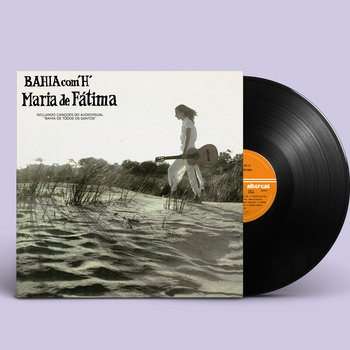
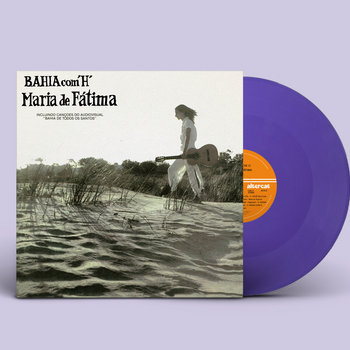

Vinyl


Recorded in 1981 in Uruguay, Maria de Fátima’s ethereal Bahia com H—the lone solo record by the Brazilian-born singer and musician—is a key entry in Altercat’s Brazilians-outside-of-Brazil streak. “Maybe on the first listen it can sound a bit plain, like, ‘Oh yeah, it’s OK to listen to it in the background.’ But the more you listen to it the more it grows. It’s full of hints and traces,” says Roig, who got to know de Fátima over the course of an afternoon while preparing the reissue. The booklet accompanying the LP is filled with photos she’d stashed in a wardrobe, virtually unseen in the intervening decades—which Roig scanned, as it happens, at Werther’s house.
Baligh Hamdi & Magid Khan
Indo-Arabic Variations
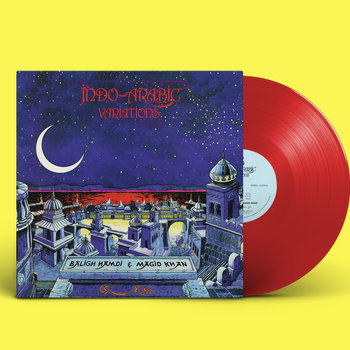
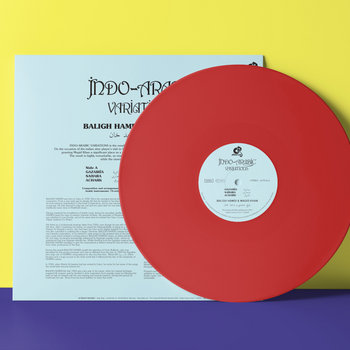
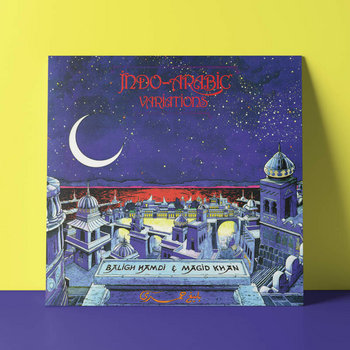
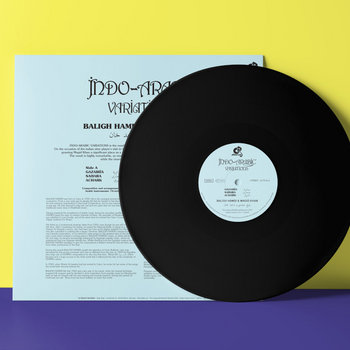
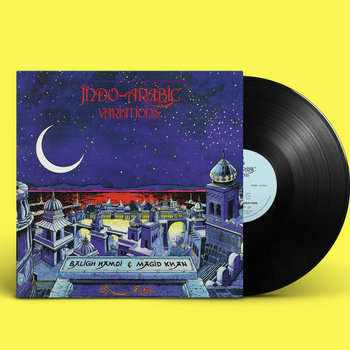
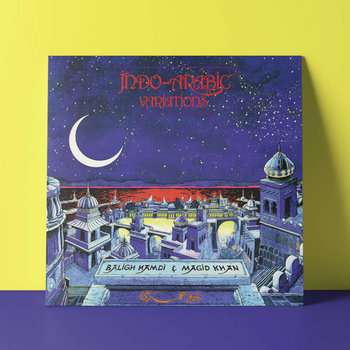
Vinyl LP




“Many have done a fusion of Arabic music with Western music, or Western music with Arabic influence, or Arabic music with Western influence,” says Roig. “But this kind of East-meets-East, as I call it, I don’t really know any.” Initially recorded and released in France, Indo-Arabic Variations united Egyptian composer and titan of 20th-century Arabic music Baligh Hamdi with Indian sitar master Magid Khan. On every other instrument present: musicians from the orchestra of Egyptian superstar Abdel Halim Hafez. It’s an inspired idea that makes for intriguing music and reflects Hamdi’s lifelong quest to expand the formal boundaries and global appeal of Arabic music. “I can’t confirm because he’s been gone for over 20 years, but I think he made a point of releasing this music in Europe. [As in,] ‘Here we are, we can also make music that is appealing to you,’” says Roig.
The Paragons
“Abba” b/w “Better Man Than I“






7" Vinyl




There’s a healthy element of righteous indignation behind Roig’s decision to properly reissue The Paragons’ 1966 single “Abba” and its B-side “Better Man Than I.” “It’s been in, if I say 12 or 15 compilations, I’m not overstating,” says Roig. “Can you believe that nobody ever gave them any money or recognition for that? They would just put it in a compilation, sell the compilation, and that’s it. And I was like, ‘Somebody has to fix this.’” “Abba” is just about everything you want out of a mid-’60s teenage garage band: insanely catchy, bouncy enough to twist to, and it’s about a girl. While it’s a noticeable departure from the rest of the catalog, it does cut a straight line to Roig’s teenage music consumption. He still loves it, of course, but these days he can also admit that “it’s a song that I can’t really hear much anymore.”
Naná Vasconcelos
Naná, Nelson Angelo, Novelli
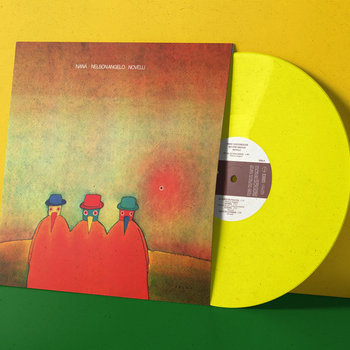
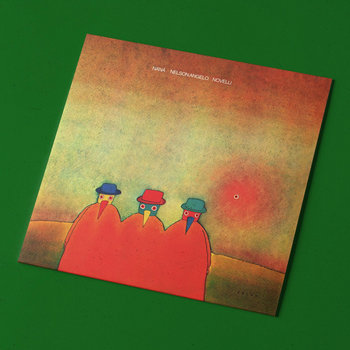
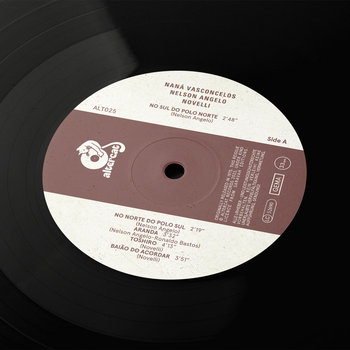
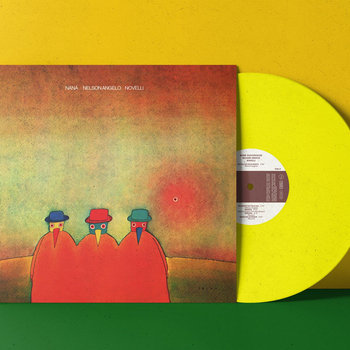


Vinyl LP




Altercat is rapidly becoming a home for the work of the late Brazilian percussionist Naná Vasconcelos thanks to Roig’s simultaneous reissues of his 1973 solo album Africadeus and his 1975 album Naná, Nelson Angelo, Novelli. Roig describes the former as “40 minutes of one guy and one berimbau” and “fantastic for people who understand it but not for everybody.” The latter, which Vasconcelos recorded in France with Nelson Angelo and Novelli when all three were still lesser-known musicians, Roig sees as truly representative of Brazilian music recorded outside Brazil. It’s inventive, often manically so. Or as Roig tells it, “You put them on a plane, take them to France. ‘OK, record something.’ And they go, ‘Let’s show these gringos.’”
Viejas Raíces
De Las Colonias del Rio de la Plata






Vinyl LP, Compact Disc (CD)




With the caveat that certain songs on De Las Colonias del Rio de la Plata do expand to include other players, Viejas Raíces is a rock-solid trio: Argentinian jazz luminary Jorge López Ruiz, Chilean pianist Matías Pizarro, and Argentinian drummer Pocho Lapouble, now best known for his work as an arranger and composer for film and theater. The record’s unapologetic departure from jazz traditionalism made it a flop upon its release in 1976—and “one of the best-received albums on Altercat” upon its 2021 reissue. “It’s something people are really happy to have rediscovered,” says Roig, who considers it “one of the best ‘70s jazz albums from South America,” period.









